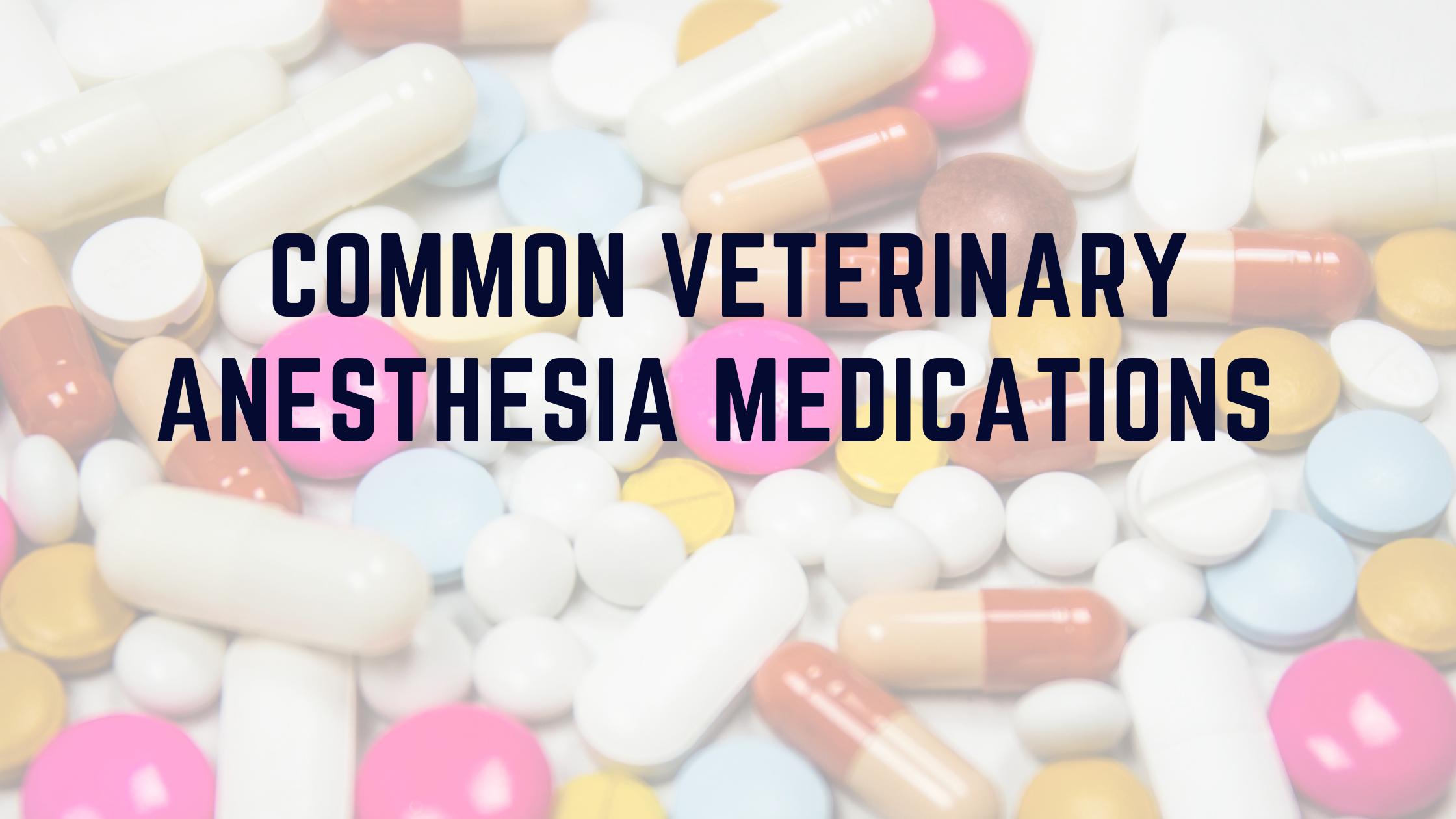Common Veterinary Anesthetic Medications Chart

DISCLAIMER: These are COMMON medications/adverse reactions to veterinary anesthetic medications, just like humans, pets also can have a variety of symptoms/reactions that are not listed or documented.
If you have any questions or concerns always speak to your veterinarian about the kinds of medications utilized and the potential side effects that may occur.
| Anesthetic/Analgesic Drug | Common Adverse Effects |
| Dexmedetomidine Medetomidine Xylazine | BradycardiaCardiac Output ReductionHypertension/HypotensionVasoconstriction |
| NSAIDs Steroids | Bleeding DisorderDiarrhea/VomitingGastrointestinal UlcerationLethargyRenal/Liver Failure |
| Diazepam Midazolam | Minimal Cardiorespiratory EffectsParadoxical Excitement of Patients |
| Halothane Isofurane Sevofurane | Decreased Cardiac OutputDecreased Myocardial Contractility Hypothermia/HyperthermiaMay result in hypotensionVasodilation |
| Diazepam/Ketamine Propofol Tiletamine/Zolazepam | CyanosisOccasional Muscle Twitches/SeizuresProfuse Salivation/Airway SecretionsRespiratory Depression Transient TachycardiaVasodilation |
| Bupivacaine Lidocaine Mepivacaine | BradycardiaHyperthermia in some animals; hypothermia more likelyCardiac ArrestHypotensionSeizure |
| Buprenorphine Butorphanol Fentanyl Hydromorphone Morphine | BradycardiaMydriasis/MiosisRespiratory Depression (hypoventilation, apnea)Vomiting |
